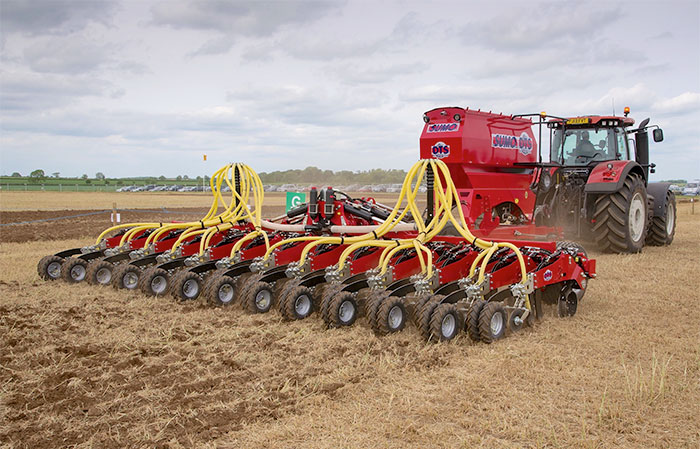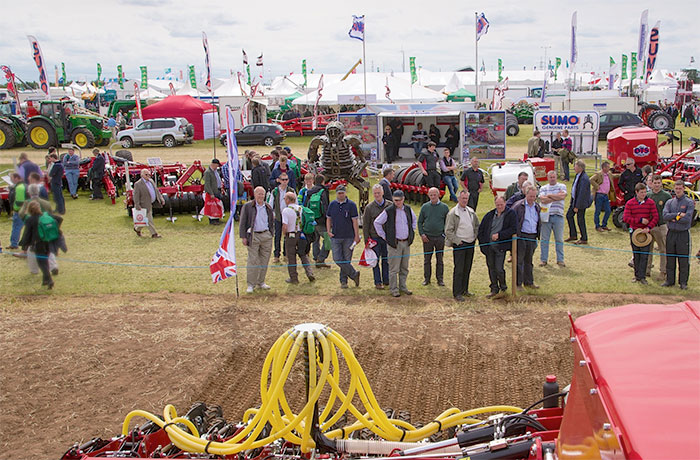
The Sumo DTS (Deep Tillage Seeder) is a one-pass drill that can work straight into previous crop residues and cover crops, as part of integrated conservation agriculture, benefitting the environment and also increasing margins.
“The DTS drill is designed to work directly into previous year’s crop residues - and will also work equally well with?a min-till or plough-based system,” explains Marcus Ainley, Sumo’s drill specialist. “It is based on a concept known as ‘strip till drilling’, a method of only loosening and preparing a band of soil where the seed is to be placed and leaving the soil in between undisturbed, and therefore not working ground unnecessarily.
“There are many advantages?to this process: it is quick, large areas can be drilled?in one pass, soil structure improves (which means better drainage, less erosion and general well-being of the soil) and in most cases, the cost and time savings are huge.
"The specific working widths and row spacings of the DTS mean it can be used alongside other machinery as part of a ‘controlled traffic’ policy

"Strip tillage with the DTS and sowing crops in a wide spaced strip allows lower seed rates to be used. This allows plants to tiller and take advantage of better light and air infiltration between the rows, leading to healthier and stronger plants.
"Only loosening the ground into which plant roots will grow reduces fuel consumption and steel wear, lowering establishment costs. Also, leaving ground in between the rows undisturbed improves the soil carrying ability for following operations.
"In a dry period, strip tillage allows roots to develop quickly in the loosened tilth, while in wetter conditions, the fissures created by the loosening tines encourages the infiltration and drainage of surface water.
"Soil structure preservation using this method encourages increased levels of worms and beneficial soil fauna
"Strip till drilling into a cover or ‘manure’ crop is an ideal method of integrating your farm into conservation agriculture and reduces carbon release from the soil.
"Lastly, the DTS relieves compaction below the seedlings and provides a loose friable environment for excellent germination and root development."
